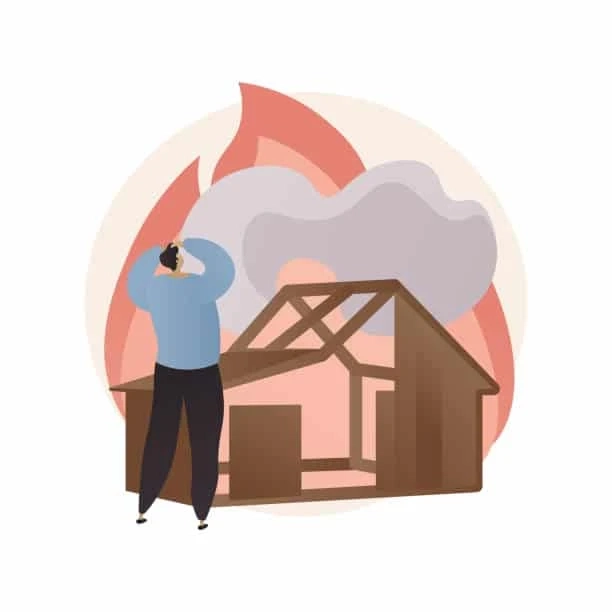Picture your average Canadian: overly polite, with an obsession for hockey and a pride for their county and the nature it’s blessed with. And what a country it is! From the rugged west coast to the endless plains of the prairies to the character of the east coast, there’s something for everyone. With such natural beauty, though, comes risk: annual wildfires.
With over 7,000 reported annual wildfires in Canada, just like how a spark spreads from tree to tree, fire season can easily leave your real estate deal up in smoke.
Here’s how fire season affects everyone in real estate.
1. LendersLenders want security. They want to know that you’ll be able to pay the mortgage back and that your property comes with as little risk as possible.
With how busy the market is, lenders are declining any mortgage application that even has the faintest smell of risk — let alone being near an active wildfire.
The closer a property is to a previous or possible wildfire, the less interested a lender is in lending on it.
2. BuyersWildfires scare buyers. The thought of moving to an area after a fire or continuing the buying process during an active fire strikes fear into the bravest of us.
If a fire sweeps through your area, it can take everything in its path, including your job and sense of security.
You don’t always have the freedom of choice when it comes to rebuilding. Only with a premium, higher-priced insurance policy would you have the possible option to rebuild in another location.
If the fires in Fort McMurray taught us anything, it’s that even if the neighbourhoods are rebuilt, the scars still remain. The newly rebuilt neighbourhoods sold, on average, for 20–30% less after the fires.
3. Insurance CompaniesThere are many people out there who don’t actually realize the dangers of living in a possible wildfire area. They get sucked into their dream property, the beautiful area they find themselves in, and think less about the potential of losing all of that to a wildfire.
After the once all-important fine print becomes “where do I sign?” you need to remember it’s the fine print that can burn you if you’re not careful.
If you’re in a possible wildfire area, look at what your insurance company will do for you if the worst happens. Policies will usually have different levels of coverage to help repair, rebuild, and replace belongings. There’s also coverage out there for other dwellings, like detached garages, pools, or sheds.
Homeowners should regularly review their insurance policies to check that the coverage keeps pace with the increasing costs for rebuilding costs.
4. Appraisers and Home InspectorsAfter endlessly searching and experiencing countless bidding wars feeling as if you’ll never find a house, let alone your dream house, you finally have an accepted offer. Success! All that’s left is the appraisal and home inspection. But there’s a catch: you hear of a possible wildfire nearby. Your heart sinks as you hope this deal doesn’t get snuffed out as fast as the fire does.
With the subject removal deadline looming, your home inspector and appraiser call it, they won’t be entering a potentially harmful situation, and you don’t blame them either. Luckily, the sellers agree to extend subject removal until the wildfire is controlled.
A home inspector will explain how to improve the structure and lifespan of a property, along with the pros and cons. If you’re buying in a wildfire area, experienced inspectors will suggest the changes you can make for a safer home, less likely to be affected in the face of a fire.
Appraisers evaluate what a home is worth. And if you’re wondering if buying in a known wildfire area can affect your property’s value — you’re right it can. If your real estate agent said “although a wildfire burnt this neighbourhood to the ground only a year ago, this house is better than new” would it be at the top of your list? Although there will still be buyers, there will be less.
What You Need to KnowNo party goes unscathed by a wildfire. When you review the average numbers and find out that an area half the size of Nova Scotia burns each year, it’s important to think seriously and figure out how a wildfire can implicate you.
No matter where you are on the property ladder, there are simple and easy precautions anyone can take in order to protect yourself, your family, and your investment from wildfires. Even if it means spending a weekend removing your too-far-gone shrubs from beside your house, your family and your neighbours will be thanking you…no one liked them anyway!
What do you do if you’re thinking of buying, selling, or refinancing in an area that’s known to be affected by wildfires? Contact the Green Mortgage Team before it’s too late.


